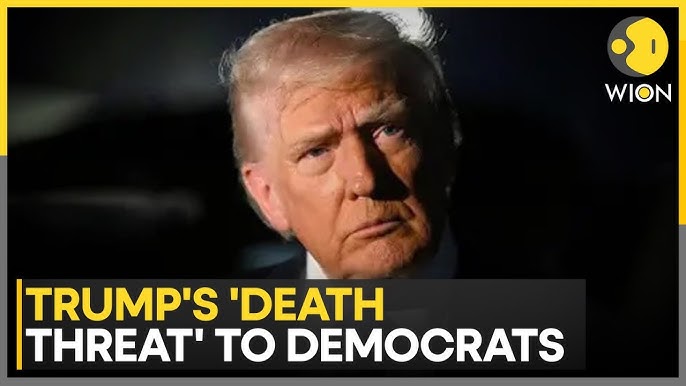After six Democratic lawmakers—former service members and intelligence officers—posted a video urging U.S. troops to refuse any “illegal orders” and to uphold their oath to the Constitution, Trump erupted in fury.
In a 90-second clip, the highly decorated group speak directly to servicemembers, warning that threats to the nation are not only external but “coming from right here at home.” They tell them: “You can refuse illegal orders. No one has to carry out orders that violate the law or our Constitution.”

Trump responded with blistering posts on his platform, calling the lawmakers “traitors” and accusing them of “seditious behavior at the highest level.” He insisted that their message “cannot be allowed to stand,” warning that such words threatened the very fabric of the country. Then he went further: “SEDITIOUS BEHAVIOR, punishable by DEATH!”

Under that grim declaration, Trump called for their arrest and trial, amplifying posts from supporters that urged even more extreme punishments. The move shocked many—some Democrats saw it as a direct attack on free speech and democratic dissent, others warned it dangerously blurred political rivalry with threats of political violence.

The targeted lawmakers pushed back. They said they were simply reminding servicemembers of an established legal duty under the Uniform Code of Military Justice, not endorsing insurrection. They reaffirmed their commitment to protecting the Constitution, vowing that no intimidation or threat, however severe, would deter them from speaking out.
Meanwhile, some legal observers raised an alarm. If the president truly believes members of Congress deserve the death penalty for urging obedience to constitutional principles, they warned, it marks a chilling escalation—not just in rhetoric, but in a fundamental challenge to democratic norms. 

